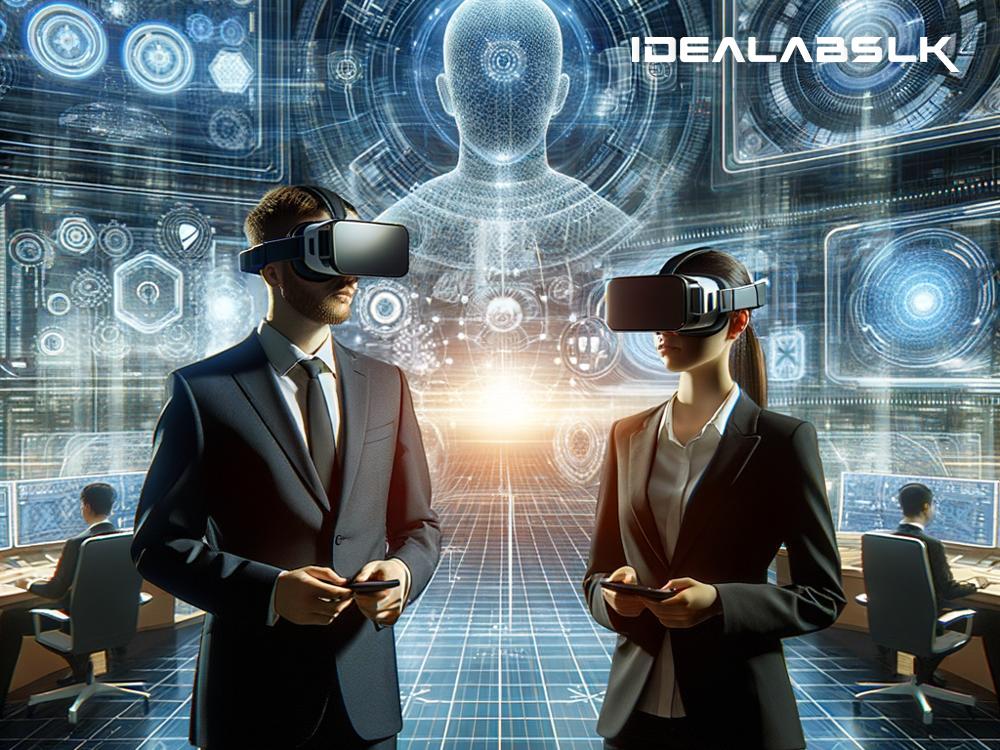How AI Powers Next-Gen VR Headsets for True Immersion
Virtual reality (VR) is no longer a figment of our imagination or just a scene from a Sci-Fi movie. It’s here, evolving rapidly, and transforming the way we game, learn, and connect. But what's pushing the boundaries of VR to deliver an experience so real that it blurs the line between the virtual and the real world? The answer lies in a powerful technology that’s changing the face of many industries: Artificial Intelligence (AI).
AI has become the backbone of next-gen VR headsets, enabling true immersion that was once deemed impossible. In this article, we'll explore how AI is powering these advanced VR headsets and what this means for the future of virtual reality.
Tailored Experiences with AI
One of the most exciting ways AI is being used in VR headsets is through personalization. AI algorithms can learn from your interactions, preferences, and even your play style. This means that over time, your VR experiences become tailored specifically to you. Whether it’s suggesting new games you might enjoy or adjusting the difficulty level in real-time, AI ensures your virtual world is uniquely yours.
Eyes and Hands: The New Controllers
In traditional VR systems, we relied heavily on hand controllers and basic head tracking. However, next-gen VR headsets are taking things to a new level with AI-powered eye and gesture tracking. This technology can accurately follow where you're looking and how you're moving your hands and fingers, all without the need for physical controllers.
This advancement is a game-changer for VR immersion. Imagine casting a spell with a flick of your finger or looking at an object to select it. It feels more natural and intuitive, further blurring the lines between the virtual and real world.
Striking Conversations with Virtual Characters
Have you ever wished you could have a more meaningful interaction with characters in VR? AI is making that possible. Advanced AI algorithms enable virtual characters to understand and respond to voice commands or questions in a much more human-like manner. These characters can remember past interactions, making your conversations with them feel more personal and realistic over time. It's like having a companion who truly knows you, enhancing the storyline and emotional engagement in virtual games and experiences.
Overcoming Motion Sickness with Smarter Environments
One of the challenges of VR has been how it sometimes makes users feel dizzy or nauseous. But thanks to AI, next-gen VR headsets are becoming much smarter in combating this issue. By understanding your movements and reactions in real-time, AI can adjust the virtual environment to minimize discomfort. This means a smoother, more comfortable experience for a wider range of users, making VR more accessible than ever before.
The Future of VR: Beyond Gaming
While gaming is a significant focus of VR, the introduction of AI opens up a world of possibilities beyond entertainment. Education, training, therapy, and remote work are just a few areas where next-gen VR headsets can have a profound impact.
For example, imagine medical students practicing surgeries in a hyper-realistic virtual environment, honed by AI to replicate real-life scenarios. Or consider people with phobias gradually facing their fears in a controlled, AI-driven virtual space. The potential is endless, with AI-powered VR headsets offering experiences that educate, heal, and connect us in ways we're just beginning to understand.
Conclusion
AI is not just an addition to the VR world; it's the driving force behind a new era of true immersion. By personalizing experiences, enabling natural interactions, creating deeply engaging narratives, and making VR more comfortable and accessible, AI is revolutionizing what's possible in virtual reality.
As we stand on the brink of this new horizon, it's exciting to think about where AI-powered VR headsets will take us next. Whether it's for gaming, learning, or exploring new ways to connect with each other, one thing is clear - the future of VR is bright, and it's smarter than ever.

